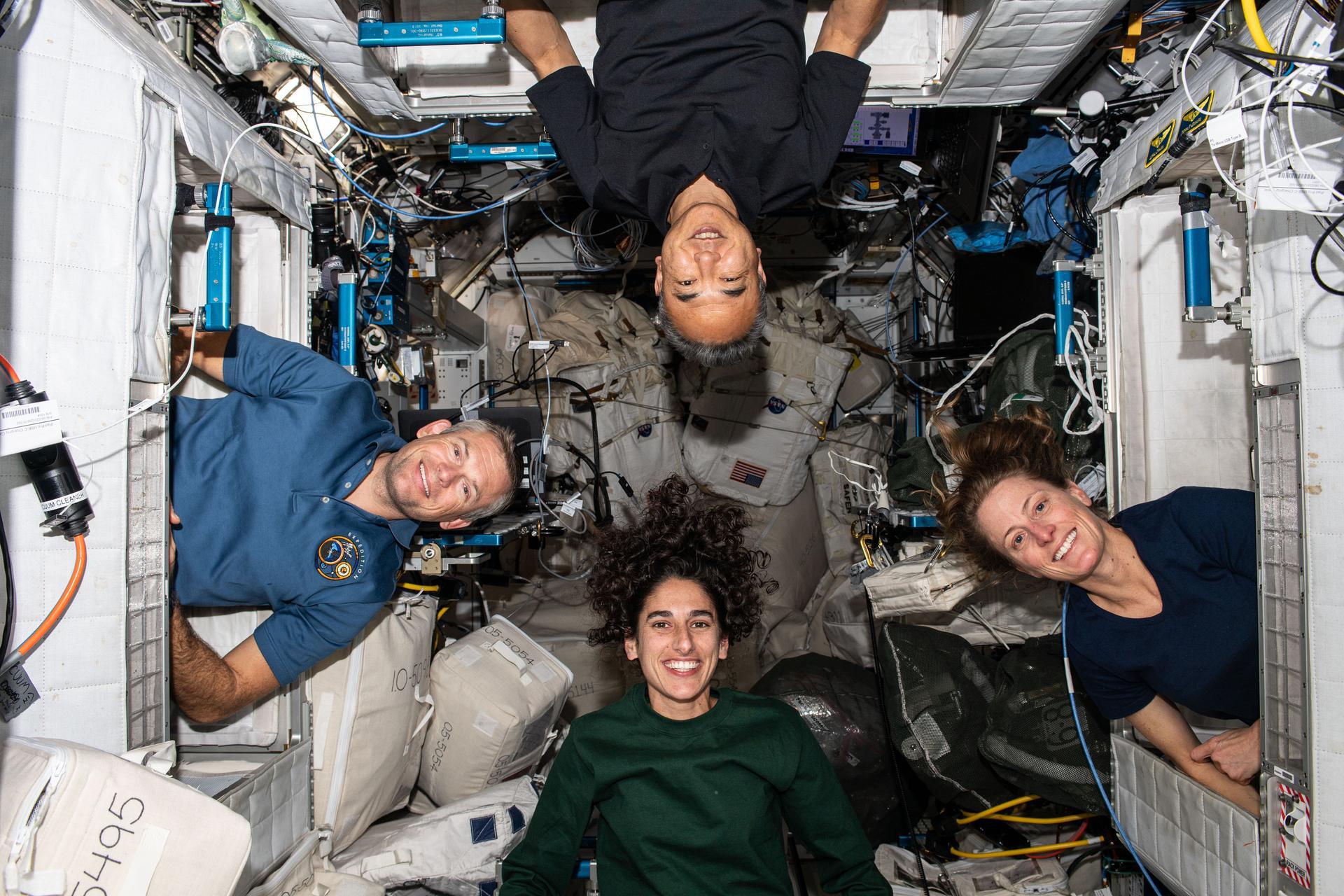12.05.2024

NASA will host four astronauts at 10 a.m. CDT Tuesday, May 14, for a media opportunity at the agency’s Marshall Space Flight Center in Huntsville, Alabama.
NASA astronauts Jasmin Moghbeli and Loral O’Hara, ESA (European Space Agency) astronaut Andreas Mogensen, and JAXA (Japan Aerospace Exploration Agency) astronaut Satoshi Furukawa served as part of Expedition 70 and will discuss their recent mission to the International Space Station.
Media are invited to attend this event and participate in a news conference to speak with the astronauts about their experiments aboard the microgravity laboratory and other mission highlights.
Media interested in participating must confirm their attendance by 12 p.m., on Monday, May 13, with Joel Wallace in Marshall’s Office of Communications at joel.w.wallace@nasa.gov or 256-786-0117.
Media must report by 9 a.m., Tuesday, May 14 to the Redstone Arsenal Joint Visitor Control Center Gate 9 parking lot, located at the Interstate 565 interchange at Research Park Boulevard. The event will take place in the NASA Marshall Activities Building 4316. Vehicles are subject to a security search at the gate, so please allow extra time. All members of media and drivers will need photo identification. Drivers will need proof of insurance, if requested.
The Expedition 70 mission to the space station began Sept. 27, 2023, and ended April 5. During their mission, the Expedition 70 crew marked the 25th anniversary of space station operations in December 2023.
As part of NASA’s SpaceX Crew-7, Moghbeli, Mogensen, and Furukawa traveled 84,434,094 miles during their mission, spent 197 days aboard the space station, and completed 3,184 orbits around Earth. The Crew-7 mission was the first spaceflight for Moghbeli. Mogensen has logged 209 days in space over his two flights, and Furukawa has logged 366 days in space over his two flights.

Throughout their mission, the Crew-7 members contributed to a host of science and maintenance activities and technology demonstrations. Moghbeli conducted one spacewalk, joined by O’Hara, replacing one of the 12 trundle bearing assemblies on the port solar alpha rotary joint, which allows the arrays to track the Sun and generate electricity to power the station. Crew-7 returned to Earth in March.
O’Hara completed 204 days in space, 3,264 orbits of the Earth, and 86.5 million miles during her first spaceflight. She witnessed the arrival of eight visiting spacecraft and the departure of seven visiting spacecraft, including both crewed and cargo missions. O’Hara also completed one spacewalk totaling six hours, 42 minutes.
While aboard the orbiting lab, O’Hara conducted dozens of science and technology activities to benefit future exploration in space and life back on Earth. O’Hara is among the first astronauts to participate in the Complement of Integrated Protocols for Human Exploration Research Program, an investigation that studies the psychological and physiological changes humans experience during spaceflight. Collecting data from astronauts on missions of different durations supports the development of ways to protect crew health on long-duration missions to the Moon and future missions to Mars. O’Hara returned to Earth in April aboard the Roscosmos Soyuz spacecraft.
The International Space Station remains the springboard to NASA’s next leap in space exploration, including future missions to the Moon and, eventually, Mars. The agency’s Huntsville Operations Support Center, or HOSC, at Marshall provides engineering and mission operations support for the space station, Commercial Crew Program, and other missions. Within the HOSC, the commercial crew support team provides engineering and safety and mission assurance expertise for launch vehicles, spacecraft propulsion, and integrated vehicle performance. The HOSC’s Payload Operations Integration Center, which operates, plans, and coordinates science experiments aboard the space station 365 days a year, 24 hours a day, supported Expedition 70, managing communications between the International Space Station crew and researchers worldwide.
For more information on the Expedition 70 crew, visit:
